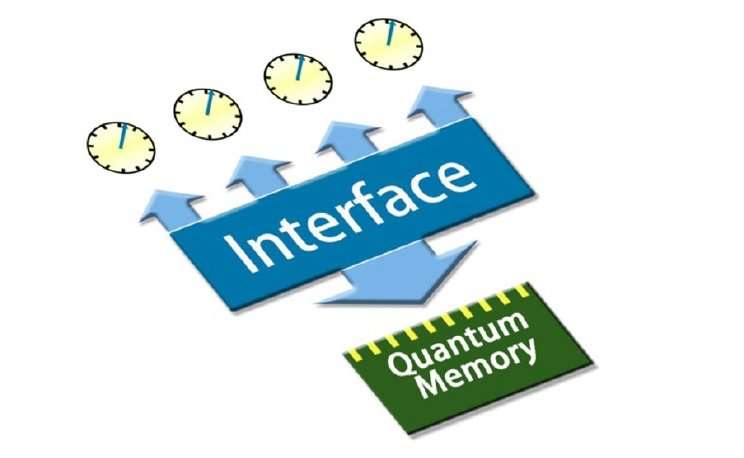June 5, 2018 feature
Quantum stopwatch stores time in a quantum memory

Physicists have developed a "quantum stopwatch"—a method that stores time (in the form of states of quantum clocks) in a quantum memory. In doing so, the method avoids the accumulation of errors that usually occurs when measuring the duration of a sequence of events. In this way, the quantum stopwatch increases the accuracy of measuring time at the quantum level, which is essential for applications such as GPS, astronomy research, and distributed computing.
The physicists, Yuxiang Yang, Giulio Chiribella, and Masahito Hayashi, from the universities of Hong Kong, Oxford, and Nagoya, have published a paper on the quantum stopwatch technique in a recent issue of the Proceedings of the Royal Society A.
As the physicists explain in their paper, when it comes to making highly accurate time measurements, some clocks are better than others for technological reasons. But all clocks—no matter how well-constructed—are subject to a fundamental quantum limit that has its roots in Heisenberg's uncertainty principle. Due to this quantum limit, larger clocks have smaller measurement errors, but no clock can be so large that it is completely error-free.
As a result of this limit, when one or more clocks make multiple time measurements—for example, when measuring the total duration of a sequence of events—then the errors accumulate. This leads to an inaccuracy that grows linearly with the number of measurements.
The quantum stopwatch method addresses this problem by transferring the states of clocks (typically consisting of many identical atoms or ions) to the memory of a quantum computer. The computer then processes all of the data and determines the length of the time interval using only a single measurement. As a result, the only error is the error due to the measurement of one clock.
"The quantum stopwatch introduces a new, more accurate way of processing time information," Chiribella told Phys.org. "Before, most people thought that the only application of quantum clocks was to provide precise, classical information about time. The clock was quantum, but the output was purely classical information, which could be stored into the memory of a classical computer. With the stopwatch, we understood that maintaining time information in a quantum form can reduce errors by a very large amount. The moral is: when we want to combine different pieces of time information, that information had better be quantum."
One of the challenges with this idea is that storing large amounts of information in a quantum memory is very difficult, which leads to the question of how much memory is needed to store time. In their paper, the physicists derive a "quantum memory bound" that determines the minimum number of qubits required by the memory to store clock states with a certain accuracy.
Overall, the physicists hope that, by showing that quantum computers could be used to increase the accuracy of time measurements, the quantum stopwatch will provide additional motivation for the development of quantum computers. They expect that one of the biggest challenges for experimentally realizing the quantum stopwatch method will be encoding and decoding the states with a high accuracy. After further improvements, the quantum stopwatch method could have a variety of new applications.
"One exciting area of application is the development of networks of quantum clocks," Chiribella said. "Imagine that a number of quantum clocks are sitting at different positions in space, and can communicate to one another through quantum communication links. By transferring information from one clock to another, we can greatly enhance the accuracy of time measurements in the network. For example, we can measure the average ticking frequency of the clocks with a precision that would not be possible if the clocks were not connected with one another. In the long term, these applications could lead to a quantum-enhanced GPS technology, which could locate objects with a precision beyond the precision of our current GPS devices."
More information: Yuxiang Yang, Giulio Chiribella, and Masahito Hayashi. "Quantum stopwatch: how to store time in a quantum memory." Proceedings of the Royal Society A. DOI: 10.1098/rspa.2017.0773
Journal information: Proceedings of the Royal Society A
© 2018 Phys.org


















